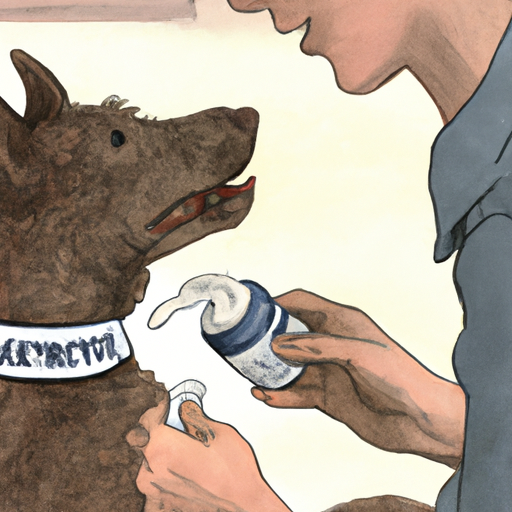As a dedicated caregiver to your furry friend, it’s important to always be on the lookout for any discomfort or distress in your pet. One common issue that dogs face is collar sores. These can be uncomfortable and potentially harmful if left untreated. But don’t worry! I’m here to guide you through the steps on how to treat collar sores on dogs.
1. Identifying Collar Sores
Before you can treat collar sores, you need to be sure that’s what you’re dealing with. Collar sores, also known as pressure sores, are raw, painful areas that develop around the neck where the collar sits. They can be caused by excessive rubbing, too tight collars, or even allergic reactions.
Here’s how to identify a collar sore:
- Look: The sore may appear red and irritated, it might be bleeding or have a crusty layer.
- Touch: Your dog might flinch when you touch the area, indicating pain.
- Behavior changes: Your dog may scratch at their neck excessively or seem generally uncomfortable.
2. Initial Treatment Steps
Once you’ve identified that your dog has a collar sore, the first steps are to alleviate the immediate discomfort and prevent further injury.
- Remove the collar: Give the area a chance to breathe and heal.
- Clean the wound: Use a mild dog-friendly antiseptic to clean the wound. This will prevent infection.
3. Ongoing Care and Prevention
Healing takes time, but there are several things you can do to speed up the process and prevent the sores from recurring.
- Apply a topical cream: Use a vet-approved cream to soothe the area and promote healing.
- Switch to a harness: A harness reduces pressure on the neck, giving the sore a chance to heal.
- Consider a softer collar: If a harness isn’t an option, opt for a padded or softer collar.
4. Vet Intervention
If the sores persist or get worse, it might be time to consult your vet. They can provide additional treatment options and rule out any underlying health issues.
| Signs it’s time to consult a vet |
|---|
| Sores are not improving after a week |
| Your dog seems to be in pain |
| The sores are spreading or getting worse |
5. FAQs
Q: Can collar sores lead to more serious health issues?
A: If left untreated, they can lead to infections which can cause more serious health problems.
Q: How can I prevent collar sores?
A: Ensure your dog’s collar is not too tight and is made from a soft, non-irritating material. Regularly checking your dog’s neck for signs of irritation can also help.
Q: Can all dogs get collar sores?
A: Yes, but dogs with short hair or sensitive skin might be more prone to developing these sores.
By following these steps and keeping a vigilant watch on your furry friend’s health, you can ensure they remain happy, healthy, and free from collar sores. Remember, as a caregiver, your dog depends on you to help them navigate the world safely and comfortably.



